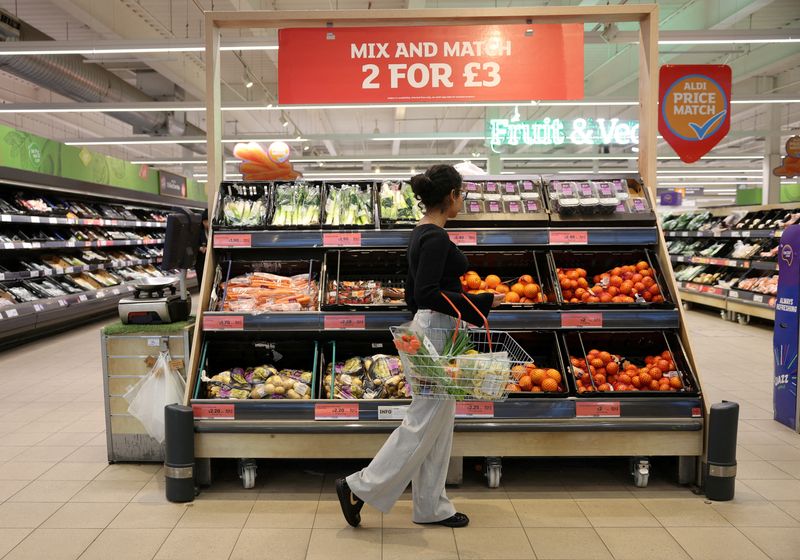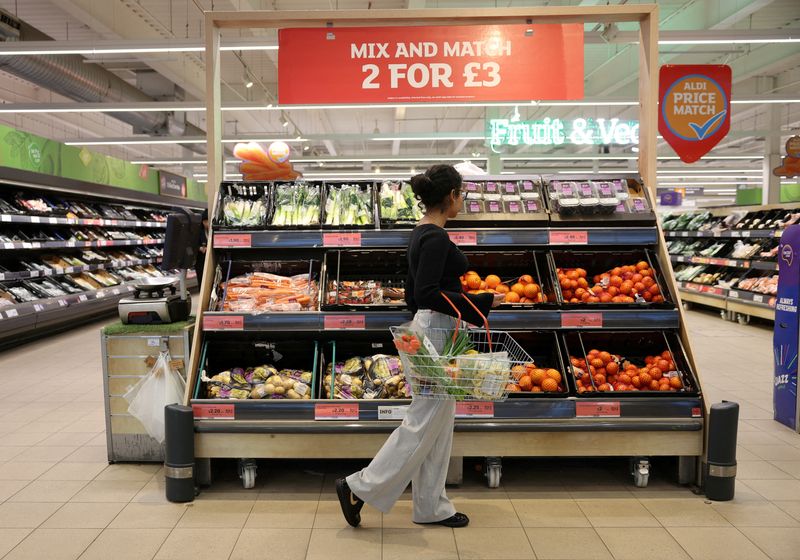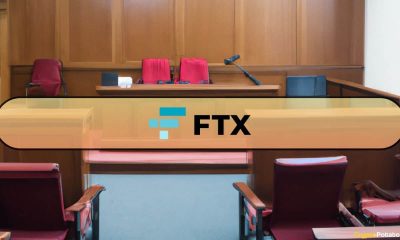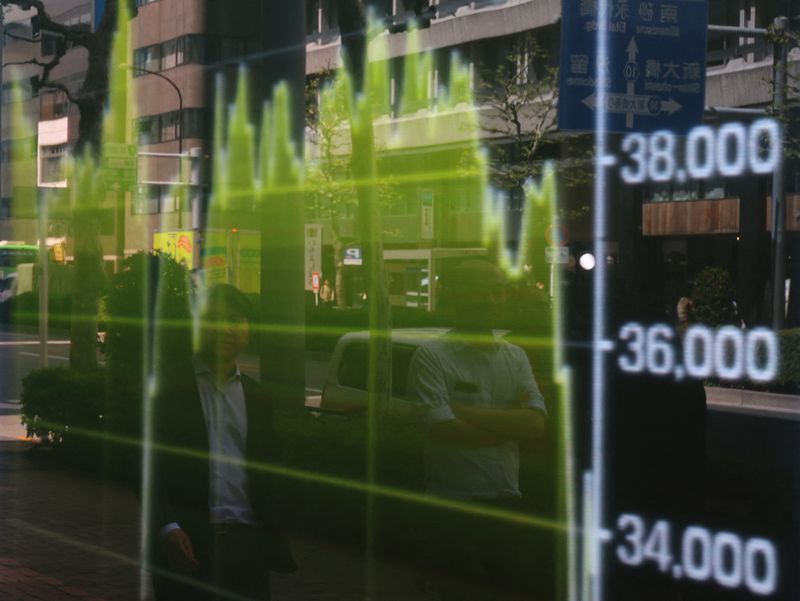Stock Markets
UK retailers crank up search for savings ahead of April tax hikes

By James Davey and Paul Sandle
LONDON (Reuters) -Britain’s big retailers, including Tesco (OTC:), Sainsbury (LON:)’s, M&S and Next (LON:), say they are stepping up their drive for efficiency through automation and other measures, to limit the impact of rising costs on the prices they charge their customers.
As the UK economy struggles to grow, the new Labour government’s solution is a hike in employer taxes to raise money for investment in infrastructure and public services, which has prompted criticism from the business community.
Retailers have said the increased social security payments, a rise in the national minimum wage, packaging levies and higher business rates – all coming in April – will cost the sector 7 billion pounds ($8.6 billion) a year.
Concerns of the wider economic impact sent retail share prices sharply lower this week and drove up government borrowing costs.
In the retail sector, larger players have more scope to adapt and are cushioned by previous healthy profits, but analysts have said smaller players could find themselves under severe pressure.
Clothing retailer Next said it faced a 67 million pounds increase in wage costs in its year to end-January 2026, but still forecast profit growth.
It reckons it can offset the higher wage bill with measures including a 1% increase in prices that it said was “unwelcome, but still lower than UK general inflation”. It can also increase operational efficiencies in its warehouses, distribution network and stores, the company said.
CEO Simon Wolfson said more automation was inevitable across the sector.
“With any mechanisation project you’re always looking at a pay-back on it – you’re saying ‘what’s the saving versus the cost of the mechanisation, or AI or software’,” he told Reuters.
“If the price of the mechanisation doesn’t go up, but the price of the labour it saves does go up, it’s going to mean that more projects can be justified.”
MORE ROBOTS?
Baker and food-to-go chain Greggs (LON:) last year opened a highly automated production line at its Newcastle, northeast England, site, meaning it can make up to 4 million more steak bakes and other products each week from its current 10 million.
Tesco, Britain’s biggest supermarket, is also increasing automation and will open a robotic chilled distribution centre in Aylesford, southeast England, this year.
No. 2 grocer Sainsbury’s is encouraging more shoppers to use its SmartShop handheld self-scanning technology.
Even though Tesco faces a 250 million pound annual hit from the hike in employer national insurance contributions alone, CEO Ken Murphy said it would cope.
Having navigated the COVID pandemic, supply chain disruption and commodity and energy inflation, he said Tesco was used to dealing with rising costs by finding savings elsewhere.
Finance chief Imran Nawaz said Tesco’s “Save to Invest” programme was on track to deliver 500 million pounds of efficiency savings in its year to February 2025, having delivered 640 million pounds in 2023/24.
“As we look ahead it’s clear it’s going to be another year where we’ll need to do a stellar job,” Nawaz said, singling out savings from better buying by Tesco’s procurement organisation, in logistics, in freight, and in cutting waste.
Sainsbury’s, facing an additional 140 million pounds national insurance headwind, is similarly targeting 1 billion pounds of cost savings by March 2027.
Clothing and food retailer M&S, facing 120 million pounds of extra wage costs, said it aimed to pass on “as little as possible” to consumers.
One of the biggest names on the British high street, the 141-year-old retailer is in the middle of a successful turnaround programme and believes it can continue to grind out further savings, modernising its distribution and supply chain.
“My summary is: big job, but lots in our control and we’ve got to be ruthlessly focused on costs in these next 12 months,” CEO Stuart Machin said.
“We talk a lot about volume growth, because the more we sell, the more that offsets some of these cost pressures.”
Ian Lance, fund manager at Redwheel, one of M&S’s biggest investors, said the firm was likely to be able to weather the cost challenges better than most. “They have an exceptionally capable management team and a product offering which is clearly resonating with consumers for its quality and value,” he said.
But for many smaller players raising prices is the only option.
A British Chambers of Commerce survey of 4,800 businesses, mostly with fewer than 250 staff, found 55% planned price increases – potentially hampering the fight to contain inflation and grow the economy.
And for some, more drastic action may be required.

British discount retailer Shoe Zone has said the additional costs of the budget meant some stores had become unviable and would be closed.
($1 = 0.8149 pounds)
Stock Markets
CFTC speculative positions, Fed balance sheet data due Monday
Stock Markets
Oracle, Datadog Lead Thursday’s Market Cap Stock Movers
Stock Markets
Stocks hit record, US dollar strengthens after jobs data

 Forex3 years ago
Forex3 years agoForex Today: the dollar is gaining strength amid gloomy sentiment at the start of the Fed’s week

 Forex3 years ago
Forex3 years agoUnbiased review of Pocket Option broker

 Forex3 years ago
Forex3 years agoDollar to pound sterling exchange rate today: Pound plummeted to its lowest since 1985

 Forex3 years ago
Forex3 years agoHow is the Australian dollar doing today?

 Cryptocurrency3 years ago
Cryptocurrency3 years agoWhat happened in the crypto market – current events today

 World3 years ago
World3 years agoWhy are modern video games an art form?

 Commodities3 years ago
Commodities3 years agoCopper continues to fall in price on expectations of lower demand in China

 Economy3 years ago
Economy3 years agoCrude oil tankers double in price due to EU anti-Russian sanctions
























